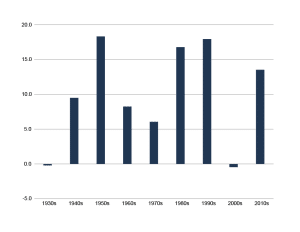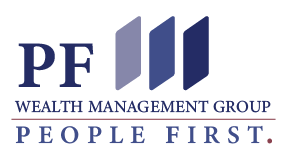Costly Wealth Transfer Mistakes to Avoid
Transferring wealth is a complex process that requires careful planning, clear communication, and regular updates. Your estate plan, which includes your legacy plan and trust documents, ensures that your wealth is distributed according to your wishes. However, without proper planning, costly mistakes—sometimes irreversible—can occur.
While estate planning can be an emotional process, it can also be incredibly satisfying and fulfilling. You’ve worked hard to build your wealth, so we believe it’s important to establish a plan that maximizes its impact and ensures your wishes are carried out.
At a minimum, legacy planning involves key decisions, such as:
- Whether to create a trust, and if so, what type.
- Who to name as your executor and trustee(s).
- Who will make decisions on your behalf if you become incapacitated.
These decisions can be overwhelming, which is why many people delay making them or avoid talking with their loved ones about their wishes. However, avoiding these discussions can lead to confusion and conflict down the road.
Common Mistakes in Estate Planning
Even the best-laid plans may change over time. Here are some of the most common pitfalls that can disrupt a smooth transfer of wealth:
1. Failing to communicate your wishes
Let’s face it—talking about death and money can make people uncomfortable. Many people avoid these conversations altogether, which can cause friction, confusion, and sometimes costly mistakes when a plan needs to be executed.
We believe it’s crucial to have open conversations with your heirs and estate planning professionals about your wishes. If they understand your decisions in advance, they will be better prepared to follow through when the time comes.
2. Choosing the wrong executor
Your executor is responsible for managing your estate and carrying out your wishes. We believe selecting the right person is essential—it should generally not only be someone you trust but also someone who has the willingness, skills, and ability to handle the job.
Many people name a family member or friend, but this isn’t always the recommended choice. If you don’t have a suitable candidate or anticipate conflicts, you may want to consider appointing a professional executor or corporate trustee.
3. Misinterpreting how trusts protect and distribute your assets
Trusts can provide a range of benefits and come in various forms, from straightforward to complex. Key factors to consider when establishing a trust include whether it allows you to manage your assets during your lifetime or only after your passing, the level of flexibility it offers, whether assets are shared or passed to a spouse, any special needs considerations, how the tax advantages flow, restrictions on when and how beneficiaries can access their inheritance, and other important elements that impact asset protection and distribution.
4. Misunderstanding how trusts handle the first and second deaths
Trusts can be structured in different ways to address various financial and estate planning goals. Some are designed to support a surviving spouse while reducing estate taxes, while others combine both spouses’ assets into a single trust for easier management during their lifetimes and a smoother transition after their passing. However, these trusts may offer less flexibility and be influenced by beneficiary decisions. We believe understanding how wealth transfer, taxation, and other factors operate based on the trust’s structure is crucial for effective planning.
5. Failing to revisit your estate documents regularly
Putting a plan in place is not a one-and-done process. It is important to periodically revisit your estate documents to ensure they reflect life changes, particularly after marriage, divorce, or the birth of children or grandchildren. People often neglect to title new and changing assets to the trust, including insurance policies that cover specific assets.
6. Overlooking the benefits of charitable giving for your heirs
Incorporating charitable giving strategies into your legacy plan may not only benefit the charities you support, but it could also benefit your estate through tax efficiencies. An advisor can help you structure your contributions in a way that maximizes the opportunity to both give and save.
Conclusion
Many of these decisions can be complicated. If you are unsure how to best set up your estate for a smooth transfer of your wealth, speak with a trusted wealth advisor who is a fiduciary. Your advisor will help you sort through options and potentially identify opportunities and pitfalls you may not have considered.
This is for informational purposes only. The information provided does not purport to present a complete picture, but Focus Partners believes the information is representative of issues and needs facing some clients and why they may seek this service. Nor should it be construed as, specific investment, tax, or legal advice. Individuals should seek advice from their wealth advisor or other advisors before undertaking actions in response to the matters discussed. No client or prospective should assume the above information serves as the receipt of, or substitute for, personalized individual advice.
This represents the opinions of Focus Partners, may contain forward-looking statements, and presents information that may change due to market conditions or other factors. Nothing contained in this presentation may be relied upon as a guarantee, promise, assurance, or representation as to the future. This is prepared using third party sources considered to be reliable; however, accuracy or completeness cannot be guaranteed. The information provide will not be updated any time after the date of publication. Numerous representatives of Focus Partners may provide investment philosophies, strategies, or market opinions that vary. The appropriateness of a particular investment or strategy will depend on an investor’s individual circumstances and objectives.
Services are offered through Focus Partners Advisor Solutions, LLC (“Advisor Solutions”) and Focus Partners Wealth, LLC (collectively referred to in this document as “Focus Partners”), SEC registered investment advisers. Registration with the SEC does not imply a certain level of skill or training and does not imply that the SEC has endorsed or approved the qualifications of the RIAs or their representatives. Prior to January 2025, Advisor Solutions was named Buckingham Strategic Partners, LLC, and Focus Partners Wealth was named The Colony Group, LLC.
©2025 Focus Partners Wealth, LLC and Focus Partners Advisor Solutions, LLC. All rights reserved.
RO-25-4288133











